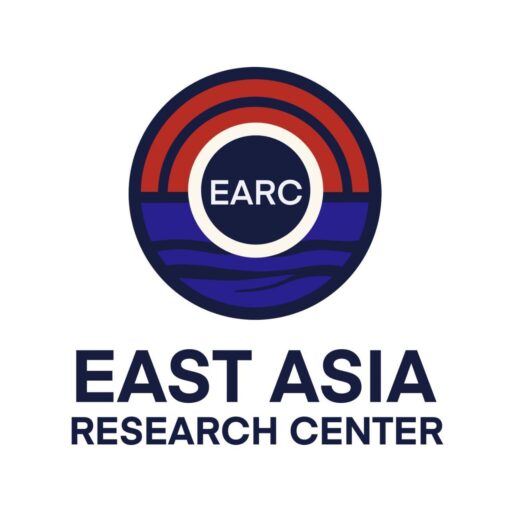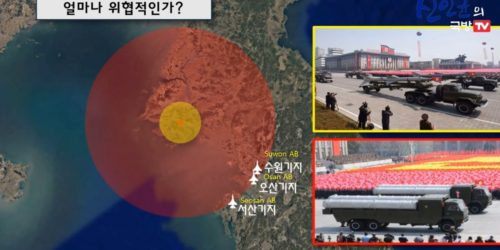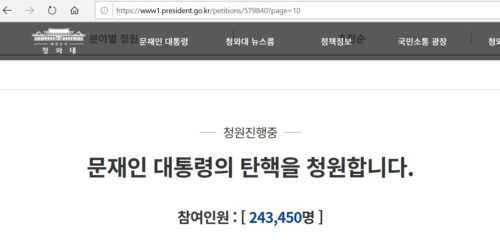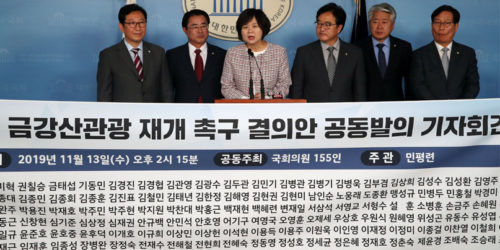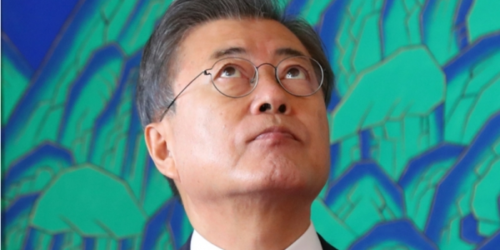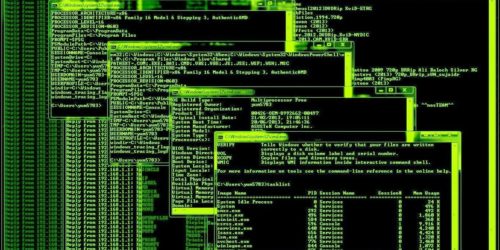South Korean POWs who Escaped from North Korea, Human Rights Groups “File a Criminal Complaint against Kim Jong-un”
2018-11-6, VOA
South Korean military POWs and abductees who escaped from North Korea and human rights organizations came together to file a criminal complaint with the prosecution against North Korea’s State Affairs Committee Chairman Kim Jong-un. They said there is no peace without human rights and criticized Kim as as a criminal offender for crimes against humanity and crimes punishable by the International Criminal Court. Foreign correspondent Kim Young-kwon reports from Seoul.
6th at the fountain in front of the Blue House
Six elderly people around the age of ninety years who had physical difficulties appeared wearing black hats symbolizing the repatriation movement of the Republic of Korea POWs from the Korean War.
In 1951, the 92-year-old Lee Gyu-il, who fought in the White Horse unit and was cadptured by North Korean military, becoming a POW. He returned to South Korea after escaping North Korea in 2008. With much difficulty without his teeth, he pleads.
[Recording: Lee Kyu-il] “The Americans pay millions of dollars and bring back the remains of their soldiers, but why doesn’t the South Korean government bring back the POWs who are still alive?
The crying and pleading voice of the elderly begins to tremble.
[Recording: Lee Kyu-il] “Mr. reporter, please think about it. In’t it bitter and resentful? (close to tears) It seems to be really too much. We must find and bring them back.”
(truncated)
Lawyer Lee Jae-won (이재원), along with various organizations, filed the criminal complaint at the Seoul Central District Prosecutor’s Office today on behalf of the ROK military POWs.
(truncated)
[Recording: Lee Jae Won] “These crimes are in violation of the Rome Statute of the International Criminal Court and its enactment laws. It is not only a crime against humanity, but also a war crime. So we filed the complaint with the intention to request the judicial authorities to immidiately investigate Kim Jong-un as soon as Kim Jong-un crosses the Military Demarcation Line and enters our jurisdiction in which our criminal law applies.
[Recording: Attorney Lee Jae Won] “North Korea detained up to 100,000 POWs after the [Armistice was signed], despite the fact that they must be repatriated, per the Geneva Conventions. They [North Korea] forced them into the [North Korea’s] Korea People’s Army [during the war], and after the war, they forced them into forced labor at coal mines, detained them, and did not repatriate them. In addition, they refused to confirm the their life and death status to their family members [in South Korea] and blocked exchanging correspondence. In North Korea, these people were classified as the 43rd element, and scorned and discriminated against in North Korea as the lowest class. Even their families [in North Korea] have been deprived of the opportunity to receive normal education and lead a normal lives, and have essentially turned them into slaves.
According to the UN Command report at the time of the Korean War, the number of Korean soldiers missing is about 82,000. However, only 8,300 POWs returned as part of the POW exchange. The South Korean government assesses that that most of the remaining Korean POWs were placed in coal mines and poor living conditions, and were eking out a living as a “hostile class” [of the Songbun political discrimination system] until they died.
South Korea’s Ministry of Defense estimates that about 500 POWs are still alive, with most of them having passed away.
Park Sun-young, chairman of the civil society group Mulmangcho [Forget-me-not flower], who supported the filing of the complaint, said that President Moon Jae-in did not fulfill the responsibility of the leader [of the ROK] because he had not raised the issue of the ROK military POWs at the three summits.
[Recording: President Park Sun-young] “The biggest difference between Free [liberal] democracy and a totalitarian society is how the leader guarantees freedom, life and rights of his people. We have been ignoring the 100,000 prisoners of war who went to war after throwing their school bags aside to save the country after the war broke out. People just have not been interested. We can no longer tolerate summits in which prisoners of war issue is not on the agenda or even mentioned.”
Kim Seok-woo, the former Vice Minister of the Ministry of Unification, said that it is not a true peace when South Korea and North Korea push for the end of war declaration, while ignoring those who were directly involved in the Korean War–the POWs.
[Recording: Former Deputy Secretary Kim Suk-woo] “The South Korean government says it will declare the end of the war with North Korea. The condition for the Armistice is to repatriate the detained POWs [back to South Korea]. It does not make sense to not address the matter and just declare an end of war. The same goes for the separated family–they should all be returned [to South Korea]. The president should not be the chief spokesman for Kim Jong-un regime, but the chief spokesman for ROK prisoners of war.”
(truncated)
[Recording: Attorney Kim Tae Hoon] “There can be no peace without human rights. This year marks the 70th anniversary of the historic Universal Declaration of Human Rights. In addition, during the the 3rd General Assembly of the United Nations General Assembly, the United Nations judged that the human rights situation in North Korea has not improved at all and has decided to adopt the 14th resolution on human rights in North Korea to calling to improve the human rights in North Korea and to condemn the regime. So next week there will be a press conference about filing a criminal complaint regarding detainees or political prison camps.
On the following six topics, each of the North Korean human rights groups plan to file a complaint, accuse, and appeal relay style until the historic day of December 10, the 70th anniversary of the Declaration of Universal Declaration of Human Rights.”
The Blue House, however, maintains that this type of pressure is not helpful in improving human rights in North Korea.
(truncated)
